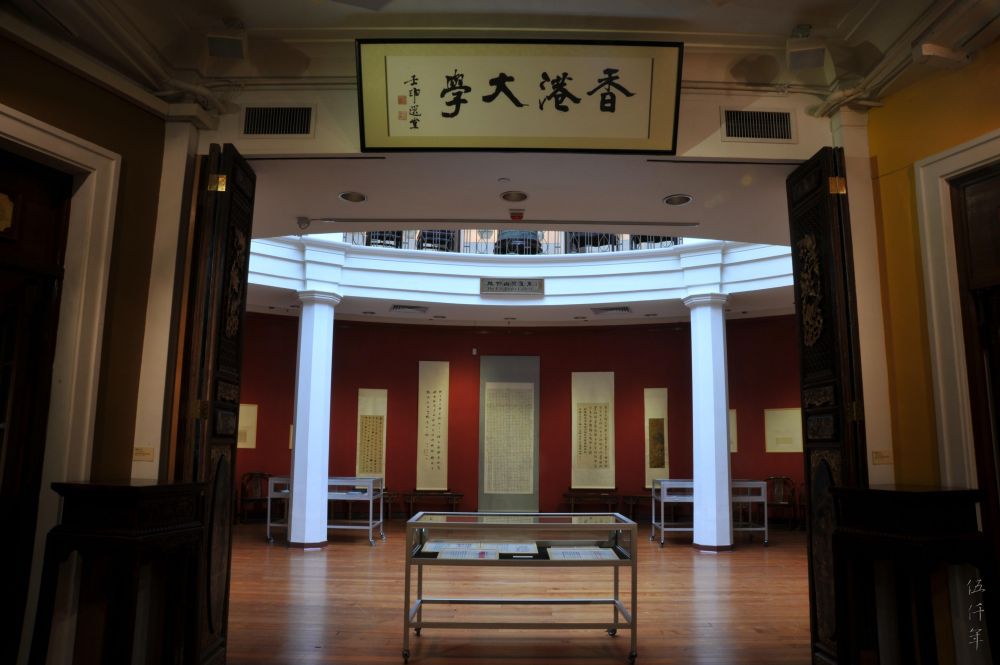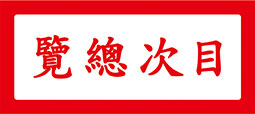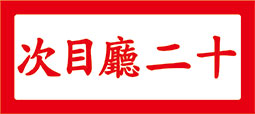Preface by Soong Shu Kong
I still remember my childhood days, when my father Hsing-an (馨菴, also known as Hsün-Leng, 諱訓倫) recounted to me the history of modern China. His words were always infused with a mixture of anger and melancholy: the humiliation of foreign aggression, the bitterness of communist partition, scene after scene, as if it were today. At that time we took refuge in Hong Kong, whilst the Cultural Revolution spread across the whole of China like wild fire. Although we were fortunate to find safety in the Concession, each day brought news of further mayhem and killings. The grief for our country, the nostalgia for bygone days, were felt deep in our hearts. Years have passed by like quicksand, but the impressions and tales of childhood, the instructions of earlier generations, are hard to disengage from. Over and over I have sought to reason: How can a civilization of thousands of years disintegrate in a spell of a hundred years, and perish in a matter of days and nights? Can this be Providence? The ebb and flow of history? Foreign devils? Deranged dictator? Conspiratorial ministers? Savage mob? Darkness in our hearts?
Born into this world of chaos and uncertainty, I am inclined to admire men of noble character and lofty purpose, those who wished to thwart the crashing waves, those who aimed to revive and restore. Some dedicated themselves to safeguard Truth, some abandoned life to preserve Truth. Many are already acclaimed in history books, but those who are unrecognized exceed tens of thousands! I regret that I possess neither the expansive learning nor ability to illuminate the virtues and works of the many exceptional men and women who have now dimmed into oblivion. If we can combine the labours of our generation of dedicated men and women who aim to change the course of history into a single force, it may still turn out to be a feeble effort, like a grasshopper raising its arms to halt a wheel. What is enough to defy destiny? Only the Confucians understand that some of their endeavours may not succeed, yet they persevered, oblivious of the end. They can be defeated in their time, but they will eventually inspire future generations, to rise and follow their footsteps.
My father sometimes talked about friends close to him: Mr Liu Kung-yun (劉攻芸先生), finance minister after the Sino-Japanese War, an incorruptible and upright man; Mr P’u Hsin-yü (溥心畬先生), who sought refuge in calligraphy and painting, and observed the highest standards of Confucian conduct. He also remarked on Wu Liu-t’ang (吳柳堂先生), the great grandfather of Mr Wu Hsiao-fen (吳肖芬先生), whose petition and suicide shocked the nation during the T’ung-chih (1862-1874) and Kuang-hsu (1875-1908) reigns. Chu Ku-wei (朱古微先生), a close friend of my great grandfather Soong Tzu-ho (宋子鶴公), was an emphatic opponent of the Boxers at court, and was nearly executed. Being young and negligible, I did not witness the conduct of these distinguished elders, but their life stories are familiar, and overwhelm me with admiration. Then it occurs to me that the word immortality, is not a hollow word. The deceased may be long gone, but their deeds and words, are worthy of posterity!
Since the Tao-kuang reign (1821-1850), China experienced frequent foreign invasions, and repeated insurrections. The country was upturned, lives crumbled to ashes, selfishness and greed pervaded society, corroding hearts and minds beyond salvation. During this time, idealists advanced in waves, some sought martyrdom in official postings, some advocated scholarship to preserve traditional culture, some championed integrity to demonstrate higher principles; all of them attempted to save China from destruction at a time of hopelessness. And now, this world has disintegrated and transfigured many times over, the past seems like the shadow of a dream, a fleeting moment in another life. I hark back to the spirit of that epoch, appearing like a faint flickering light, recalling traces of old tales of people and incidents. So much regret that so few have heard these tales!
A century after the Revolution of 1911, I have compiled Mountains Ablaze: ‘Foreign Devils’ and Chinese Patriots 1839-1911, in two volumes. These pages contain two hundred and twelve pieces of autographed letters, calligraphy, paintings, scholar’s objects, and rare volumes related to eighty-seven eminent officials, scholars, i-min (loyalists) and foreigners from the Fu-mei-hua Kuan (賦梅花館) collection. By assembling together these speckles of relics, unsatisfying though they are to examine the ambitions and achievements of these distinguished men; they are nevertheless auspicious rays of light, precious pearls unscorched by fire. Reflecting on them, the mind wanders back and forth through history, and feels the sorrow that resides in this eternal mist.
In the past, Chinese collectors rarely preserved the works of Europeans or Americans, because of their different nationalities and divergent languages, while they each served their own government and paid allegiance to their own country. During late Ch’ing, foreign aggression raged, there were however some foreigners who spearheaded China’s diplomacy, some fought with Chinese in the battlefield, some introduced science and industry, some established modern education, some translated the Classics and made them known across the oceans, while some spoke their minds rebuking the policies of the powers. Their actions were no less than sending coal to a man freezing in the snow, and China’s peril temporarily abated. Hence, the difference between Chinese and foreigner cannot be determined by bloodline, skin colour, geography, nor government. I have known foreigners who love and study Chinese culture as if it is life; I have also known Chinese who despise Chinese culture and are impatient for its demise. We therefore need to consider with care the distinction between Chinese and foreigner; the foreigner can become Chinese, and the Chinese can become foreigner. Moreover, China herself is a cultural construct, it is not defined by territory. If Humanism exists, the country exists; if Humanism dies, the country dies. The Ming loyalist, Chu Shun-shui (朱舜水,1600-1682) left China for Japan many thousands of miles away, but the Ming court continued to live in his heart.
During the Taiping Rebellion, Confucian temples were burned down and the old social structure was relinquished. The Confucian leader, Tseng Kuo-fan (曾國藩), led traditional scholars into combat. It was not just a question of loyalty to the Ch’ing court, it was for him his duty to preserve traditional cultural. With the fall of Ch’ing, political and social structures changed, traditional learning was abandoned, foreign values were extolled, and it was heart-wrenching for the traditionalists. At the same time, they were incensed by foreign partitions and internal insurgences. Some chose to emulate the principles of the Ming loyalists and declined to work for the new government. Soon after, the May Fourth Movement broke out, old learning was purged, new learning was lauded, and the most extreme form of westernization was no less than the later implementation of Marxism. In recent years, there has been acknowledgement to revive traditional values, and the bygone sorrow of the earlier i-min should finally be conceded.
Today, if our eminent ancestors could see our mountains and rivers, the party machinery, the ways and customs of the people, how could their screams be any less than those in the Sheng-shih wei-yen (盛世危言) by Cheng Kuan-ying (鄭觀應), or Ssu-hun chi (四魂集) by I Shun-ting (易順鼎), or Jen-hsüeh (仁學) by T’an Ssu-t’ung (譚嗣同)? This pitch-dark world without justice, selfishness and greed pervade the government, moans and cries proliferate across the land. From such we know that the government system that modern patriots have fought to install with their lives is still far from being attained! The sword of the ancient scholars is the Confucian Way: to inspire and motivate people, to remake an epoch, to affect generations after generations with this inheritance, to touch the world with truthfulness and honesty, so that the spirit of the nation can long continue. A century on, I pay homage to these eminent men amongst their relics and writings, to reflect on their moral bearing and conduct, boundlessly moved. This distant frail light will yet one day cleanse this world. This book has been edited as a tribute to the soul of our land.
Soong Shu Kong
August 2012





